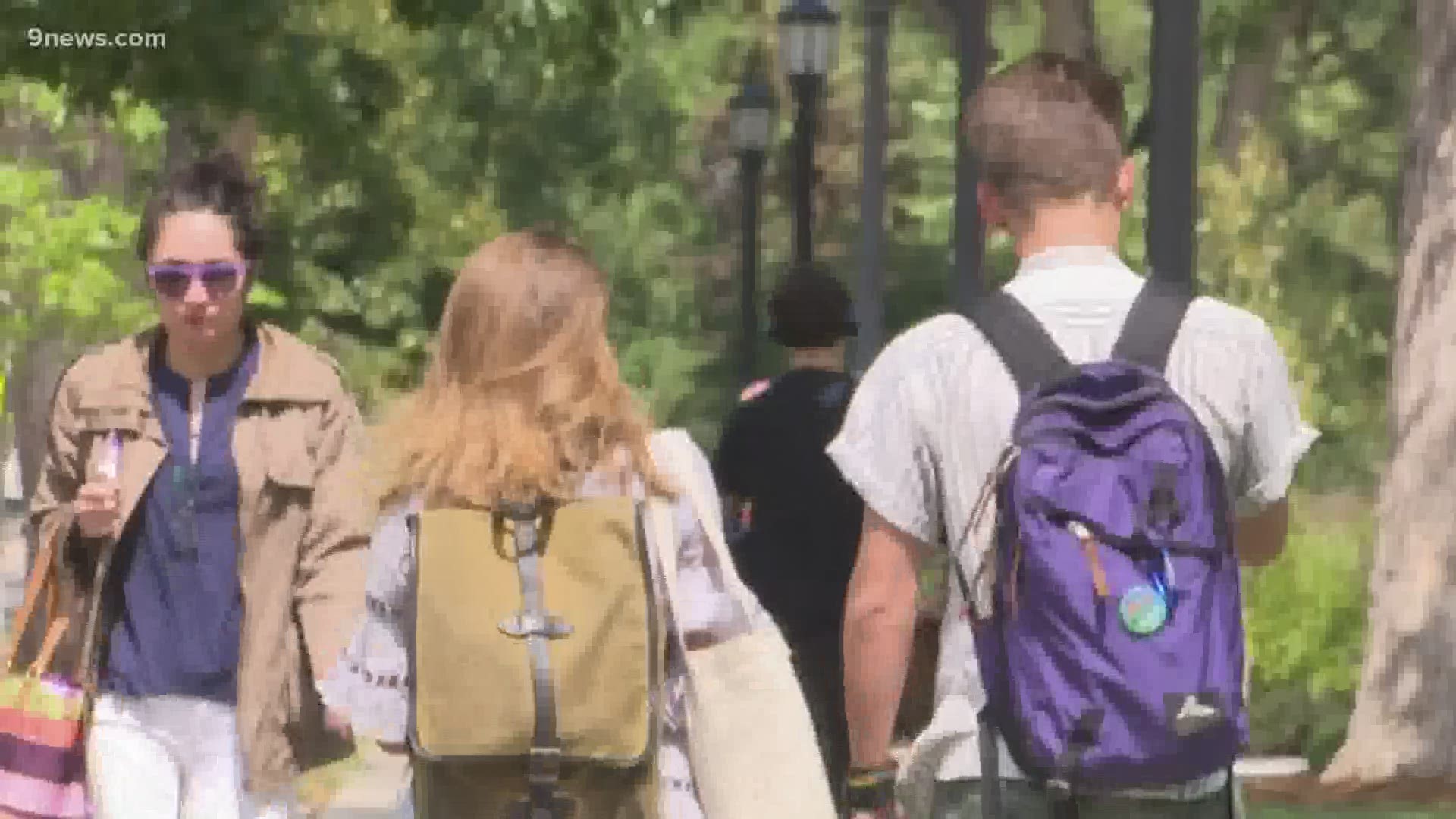COLORADO, USA — Colorado's universities are going to look very different this fall.
In addition to moving many classes online, life on a college campus will also feel different.
9NEWS reached out to several universities to get a better idea of some of the changes planned for the upcoming school year. Here are a few of the answers, as well as links to the school’s website with more details about returning to campus.
TESTING AND CONTACT TRACING
CSU Denver plans to test all in-residence students upon arrival.
“They are given training on symptoms reporting,” President Joyce McConnell told the Fort Collins City Council during a presentation this week. “They have an app that they’ll be reporting daily. Our employees have an app that they will be reporting their symptoms daily.”
McConnell said students are instructed to come with a symptom checking kit, or one will be provided to them.
“We have also hired mobilized contact tracers," she said. "So as soon as any symptom is reported by an employee or a student, that person will be contacted immediately. They will be tested immediately. We have the ability to have 24 hour response in our tests. And all of their contacts will be contacted,” she told council members.”
The University of Denver plans to partner with National Jewish Health for testing on campus.
The University of Colorado said students moving into residence halls will be required to complete a COVID-19 test within five days of moving in. CU Boulder’s website said the university will have on-campus testing for students, faculty and staff with symptoms and a goal of maximizing capacity to have a robust testing program.
Testing will be available on campus at Metro State University Denver, too. The school's website says “... any Auraria Campus student, faculty or staff member can be tested at no cost, regardless of whether they are insured or not.”
CLASS OPTIONS
Universities are offering both in-person and remote-learning.
Metro State University (MSU) Denver said about 95% of classes will be taught online this fall.
“The remaining face-to-face classes being offered for fall are predominately hands-on lab type classes the require equipment as well as studio arts and music curriculum,” explained Tim Carroll, Director of Media Relations.
MSU Denver is requiring students, faculty and staff members wear face coverings while on campus when in the presence of others. The school is planning for a 7x7 foot “bubble” of space around each student to maintain social distancing in classrooms.
CSU is planning for most classes to be face-to-face or a hybrid model, according to the presentation President McConnell gave to Fort Collins City Councilmembers this week
Classrooms cannot exceed more than 50% of normal capacity, and CSU must provide six feet of distance between all people in the classroom. Some classes will split into sections and be taught multiple times each week, according to that latest plan.
“Because this work takes time and public health orders can change, CSU will not finalize class schedules and locations until right before classes start,” the presentation explains.
“We’re dealing in a time of great uncertainty. So what I'm telling you today is a snapshot, of where we are at this moment in time,” McConnell told the council.
“You could invite me back next week and its possible that this would change. But I want to make sure you know where we are at this moment.”
ON-CAMPUS HOUSING
Many colleges have reduced the density within on-campus housing.
Colorado School of Mines is capping on-campus housing at 80% occupancy, and leaving the other 20% available for self-quarantine and/or isolation, as needed.
A spokeswoman said rooms will be single and double occupancy only. The Mines website offers some details about other changes to campus life, including dining services.
Grab-and-go options will replace self-service dining, the website says.
The University of Colorado Colorado Springs is also reducing dorm capacity, to about 80%. A spokesman said most students will be in single rooms.
CU Boulder said on campus housing density will be reduced, and students will be housed based on their academic college.
“This will allow students to live and take classes with the same small group,” explained a university spokeswoman in an email Wednesday. “Our new cohorts will support student interaction, connection and safety due to their intentional ‘community within a community’ design.”
The University of Denver has also increased the number of single-occupancy rooms, set aside space for students who may need to isolate or quarantine, and increased campus cleaning and disinfecting services.
SUGGESTED VIDEOS: COVID-19 Coronavirus

